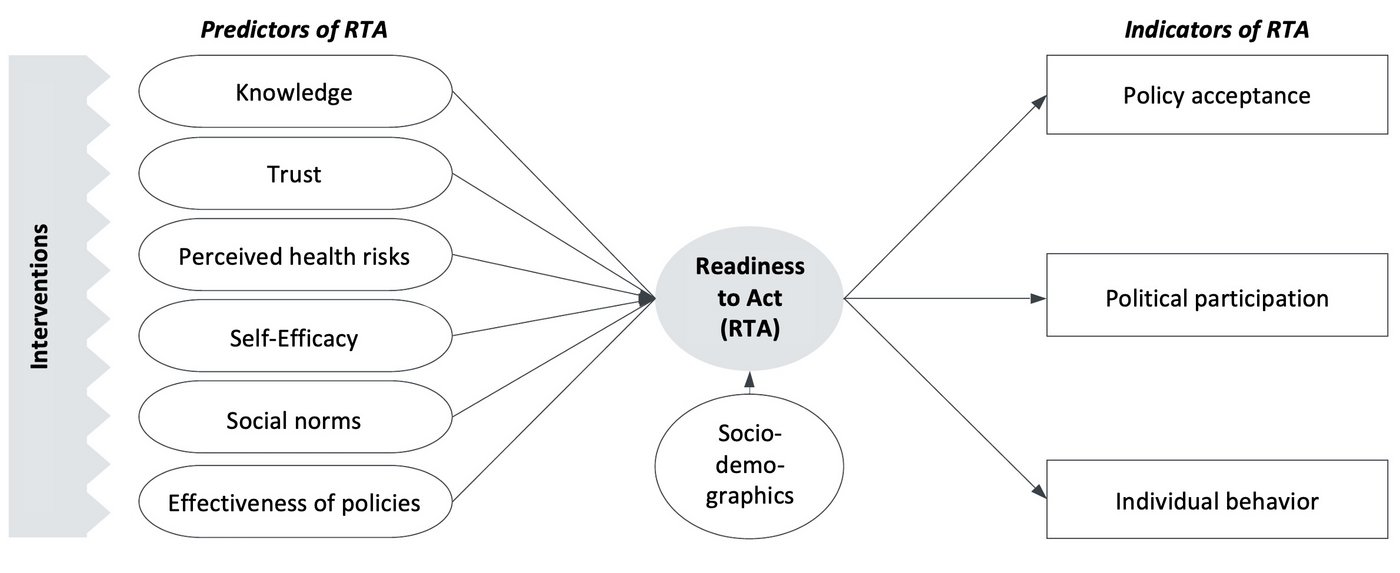Research for better climate protection
Klaus Tschira Foundation extends funding
The PACE project (Planetary Health Action Survey) has been taking a regular psychological look at climate change since 2022. The focus is on people’s readiness to act on climate protection, i.e. how strongly they are committed to climate protection and combating the climate crisis. The Klaus Tschira Foundation extends the research funding of PACE until August 2028. Researchers from the Bernhard Nocht Institute for Tropical Medicine (BNITM), the Institute for Planetary Health Behaviour (IPB) at the University of Erfurt and other cooperation partners are involved in the project. The aim is to use the findings of the study to support decision-makers in designing and communicating climate protection measures in such a way that climate protection is accelerated.

"Scientists around the world have identified climate change as the greatest global threat to human health. Nevertheless, there has often been a reluctance to act when it comes to preserving our livelihoods," says Prof. Dr Cornelia Betsch, Head of the Health Communication Working Group at BNITM and Director of IBP. Betsch leads the PACE project. "We are delighted to be able to continue and expand PACE with the new funding from the Klaus Tschira Foundation.”
Cornelia Betsch and her research team regularly conduct online surveys among 1,000 adults to investigate the knowledge, risk perception, trust, attitudes and behaviour of the German population in relation to the climate crisis. PACE thus provides a clear picture of how people perceive the climate crisis and climate protection measures.
"We want to contribute to a better understanding of the factors that influence people's attitudes and behaviour with regard to climate protection," explains Betsch. "In the next step, the results of PACE will help us to design political climate protection measures and accompanying communication campaigns in such a way that people are more likely to support them.”

PACE pays particular attention to people's readiness to take action against climate change. A high level of readiness to act means that people behave in a climate-friendly way, are politically committed to climate protection and support political measures. Among other things, the researchers were able to show that the readiness to act depends on how people perceive the health risks of climate change, whether they trust the government and the social environment in which they live.

For example, Lena Lehrer, a PhD student in the PACE project, conducted surveys with 3,845 respondents in 2022 and 2023 to investigate how people in Germany perceive health risks from climate change and whether their willingness to do something about it is related to socio-demographic characteristics (Lehrer L. et al., Communicating climate change and health to specific target groups, J. Health Monit. 2023). She found that many people see visible climate impacts, such as extreme weather events, as a threat. However, they underestimate mental health problems and rising allergens. Those who rate the risks higher are more likely to take action. Young people, men, the less educated and residents of smaller communities are less likely to take action. The search for channels that are suitable for reaching hesitant target groups revealed that the most reluctant people with the greatest need for information were less likely to seek information through any channels. Lehrer and her colleagues concluded that communication should be tailored to specific target groups without losing sight of supposedly engaged groups such as young people.
"Interactive formats or health-related information could make the topic more tangible. Risks need to be communicated realistically, but communication should also highlight solutions and possible options of action," explains Lehrer, first author of the publication.
In March 2025, two new PhD students, Lisa Marie Hempel and Kira Maur, start their research work in the PACE project. Together with the project team, they have already developed measurements to evaluate the actual political participation behaviour in order to further investigate the predictive power of the developed PACE model. In her work, Kira Maur wants to better understand the gap between behavioural intentions and actual behaviour in climate protection. Among other things, Lisa Marie Hempel wants to investigate how perceived injustices caused by climate change affect the readiness to act against climate change (e.g. differences between groups in causing climate change).
"We are looking forward to working in an interdisciplinary team on effective strategies to help people live healthier and more climate-friendly lives," say Maur and Hempel.
In addition to the BNITM and the IPB, the Robert Koch Institute, the Federal Centre for Health Education, the Leibniz Institute for Psychology and the Science Media Center are partners in PACE project.

Contact person
Prof. Dr Cornelia Betsch
Research Group Leader
Email : cornelia.betsch@bnitm.de
Dr Anna Hein
Public Relations
Phone : +49 40 285380-269
Email : presse@bnitm.de






